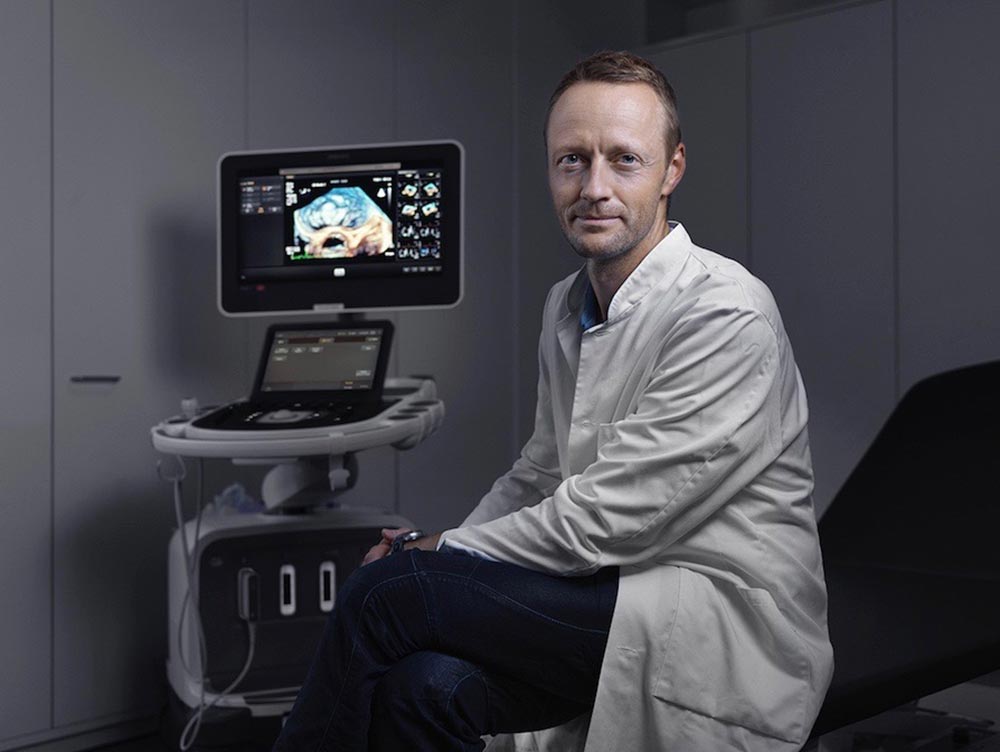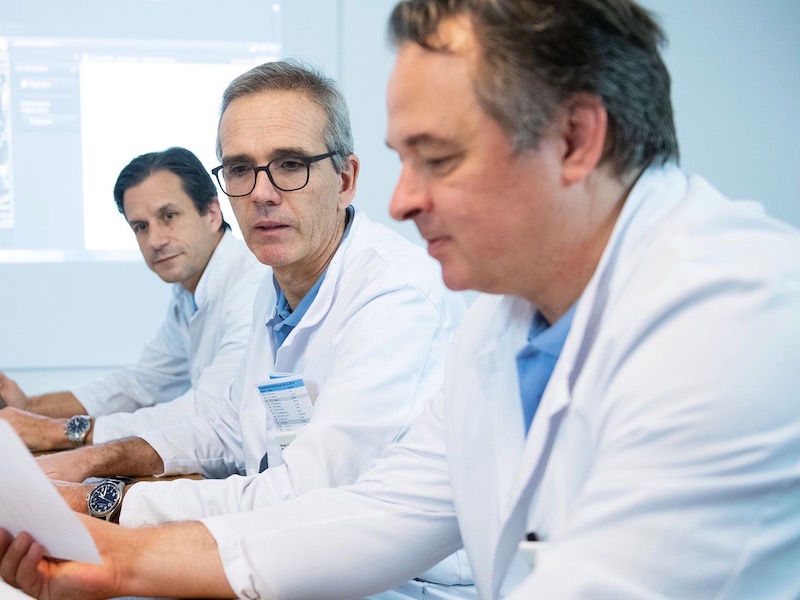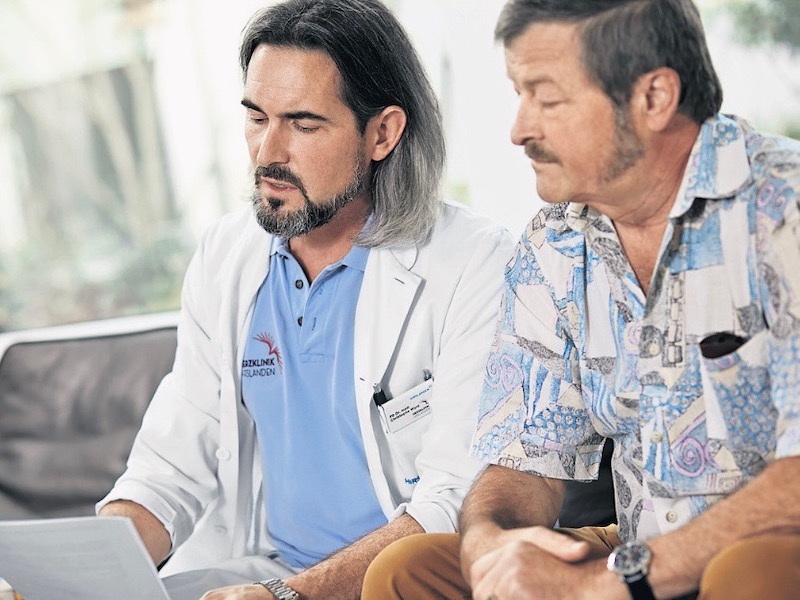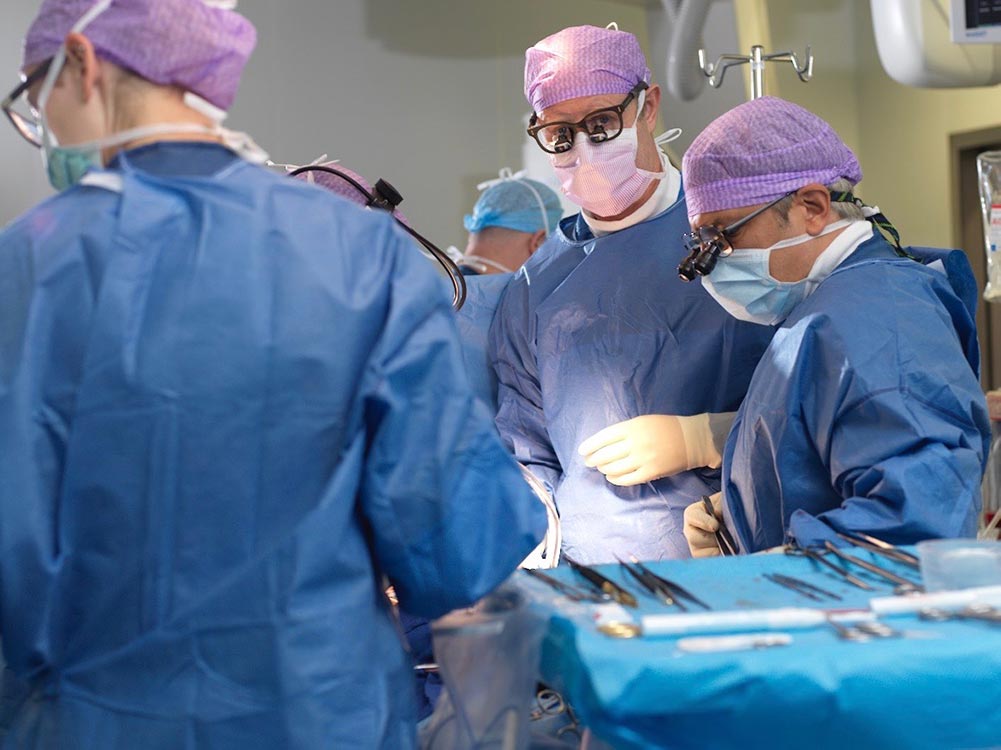Cardiac imaging with echocardiography and fluoroscopy (Heart Imaging)
23 October 2016
Automated anatomical intelligence: next-generation fusion imaging in structural cardiac interventions.
Cardiac teams performing structural cardiac interventions face unique imaging difficulties, including separate image orientation and different imaging capabilities of the techniques involved.
Special software (EchoNavigator, Philips Health Care, Best, The Netherlands) allows fusion of three-dimensional trans-phageal echocardiography and fluoroscopy to address such shortcomings. However, visualization of complex anatomical structures and interventional precision in the beating heart remain a challenge.

Novel EchoNavigator software (examination device) with anatomical intelligence automatically generates a heart model with delineation of critical anatomical landmarks [PanelA1; left ventricle and aortic root model with aortic valve cusp nadirs (yellow triangles)]. Joint registration with the C-arm and the use of electrocardiogram gating allow live overlay of the model during fluoroscopy (PanelA2, online supplementary material, Video S1).
TAVI
During transcatheter aortic valve implantation, model overlay can be used for optimal alignment of the annular plane before prosthesis implantation without the use of a contrast agent (dotted line on the needles in panelA3, supplemental online material, video S2) or for correct positioning of a temporary pacing lead ( arrowhead in panels B1 and B2 and supplemental online material (video S3 showing the heart at different angles).
MitraClip
During the MitraClip procedure (supplementary online material, video S4), the overlay of the heart model (panelC1) and the automatically generated anatomical landmarks such as the opening of the left superior pulmonary vein (white triangle), the opening of the left atrial appendage (purple circle), and the mitral ring (arrow, panelC2) ensure precise and safe catheter passage through the vulnerable left atrium. Advanced imaging technologies can therefore play an important rule to increase the efficacy and safety of structural cardiac interventions.
- – – –
Supplementary material is available at European Heart Journal online.
European Heart Journal, Volume 38, Issue 18,
Patric Biaggi, Niels Nijhof, Roberto Corti: (Published: 20 October 2016)(PDF)
Source: Published on behalf of the European Society of Cardiology.
More reports
Cardiac Imaging (Heart Imaging)
Techniques of imaging the heart (cardiac imaging): Imaging the heart (cardiac imaging) is indispensable for making a diagnosis....
HerzTeam: Experience is decisive
The experience of the heart team is crucial Stenosis and leakage of the heart valve are among the most common structural heart diseases. The...
Heart attack - Precious minutes
Every minute is precious in a heart attack The earlier a heart attack is treated, the higher the chance of survival and the...
Successful reconstruction of the tricuspid valve
Ernst Spalinger has confidence in his heart again. After the operation on the tricuspid valve, fear and shortness of breath are blown away....
Minimally invasive heart surgery
Prof. Dr. Jürg Grünenfelder, specialist in cardiac and thoracic vascular surgery at Herzklinik Hirslanden, is a specialist in minimally invasive...
Structural heart disease
What is structural heart disease? Structural heart disease refers to diseases of the heart that predominantly affect one of the four heart valves,...
All specialists at the Heart Valve Center of Herzklinik Hirslanden
Prof. Dr. med. ROBERTO CORTI
Interventional Cardiology
Prof. Dr. med. JÜRG GRÜNENFELDER
Cardiac Surgery
MD. THIERRY AYMARD
Cardiac Surgery
PD Dr. med. PATRIC BIAGGI
Cardiology | Imaging
Prof. Dr. med. OLIVER GÄMPERLI
Interventional Cardiology
PD Dr. med. DAVID HÜRLIMANN
Cardiology | Rhythmology
Dr. med. IOANNIS KAPOS
Cardiology | Imaging
MD. SILKE WÖRNER
Cardiology | Imaging
Prof. Dr. med. GEORG NOLL
Cardiology | Prevention
MD. IVANO REHO
Cardiology | Aortic Aneurysm
PD Dr. med. (H) DIANA RESER
Cardiac Surgery
Prof. Dr. med. JAN STEFFEL
Cardiology | Rhythmology
Prof. Dr. med. PETER M. WENAWESER
Interventional Cardiology
Prof. Dr. med. CHRISTOPHE WYSS
Interventional Cardiology





